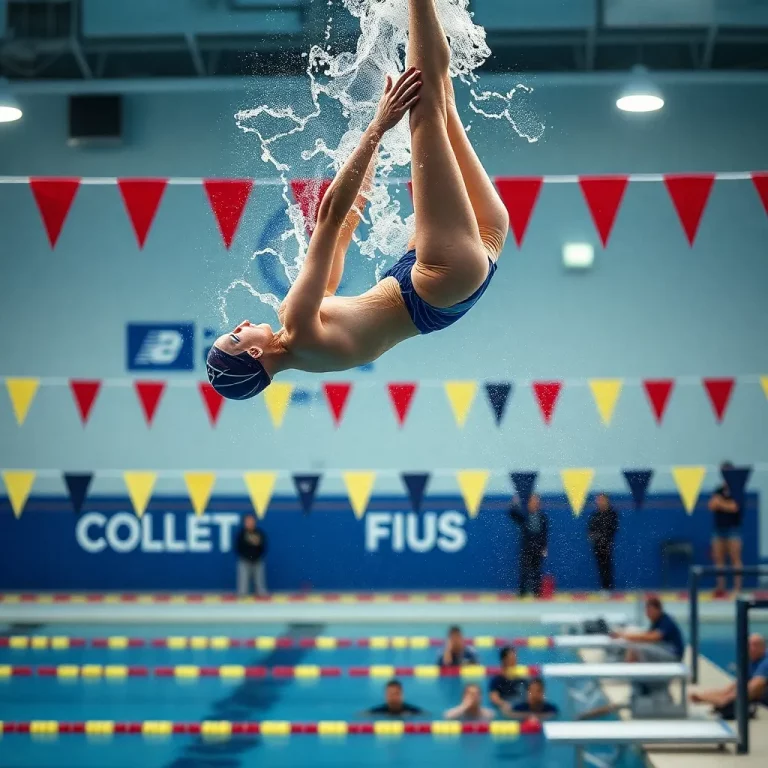College Diving Programs Shakeup Hits Freshmen Athletes
In Charlottesville, Virginia, the recent decisions by college athletic programs have left freshmen athletes Nick and Noah Wanzer in a difficult position. The twins, who found their niche in competitive diving early on thanks to their childhood exposure at their mother’s swim and tennis club, are now facing an uncertain future in the sport they love.
Nick and Noah, who are identical twins, enjoyed successful high school diving careers, leading them to compete at the collegiate level. In the fall of the past year, Nick joined the diving team at the University of Virginia while Noah headed to North Carolina State University. Both were excited to pursue their diving ambitions and even talked about the possibility of competing in the Olympics someday. However, in early March, both university programs made stunning announcements that rocked their athletic careers.
Virginia’s coaching staff informed Nick and his teammates that the diving program would be suspended indefinitely. Just days later, Noah received news that he was cut from N.C. State’s slimmed-down diving roster, which now included only one diver. The suspension and cuts were precipitated by financial changes within college sports that emphasized spending on football and men’s basketball, leaving smaller programs like diving vulnerable.
The landscape of college athletics has shifted dramatically due to a recent legal ruling that allows universities to pay athletes directly for the first time, with a total of up to $20.5 million available across sports. This financial shift prioritized funding for high-revenue sports, causing many schools to reassess their athletic offerings, leading to the cancellation of less popular programs.
As Nick and Noah grappled with their situations, they were placed on a special list that allows them to transfer to another school without counting against future sports rosters. Even with this option, both faced a challenging atmosphere as the pools of available opportunities shrank significantly. The twin brothers’ dreams of diving together seemed at risk of coming to an abrupt end.
Nick received heartfelt encouragement from his family but felt the uncertainty just as much as his brother. “If they want to pay a football team $20 million to play in college, fine,” their father, Cochise, said in frustration. “But my boys worked their entire lives for this. It’s just not fair.”
As summer approaches and the new academic year looms, both athletes must weigh their options and decide where best to pursue their passions while navigating the difficulties of the new college sports economy.
The Wanzers’ experience reflects a larger trend in college sports, where emerging economic realities challenge the existence of smaller athletic programs and create tough choices for student-athletes reliant on those programs. Parents, athletes, and fans alike are left hoping for a resolution that can secure the futures of the next generation of competitors.


